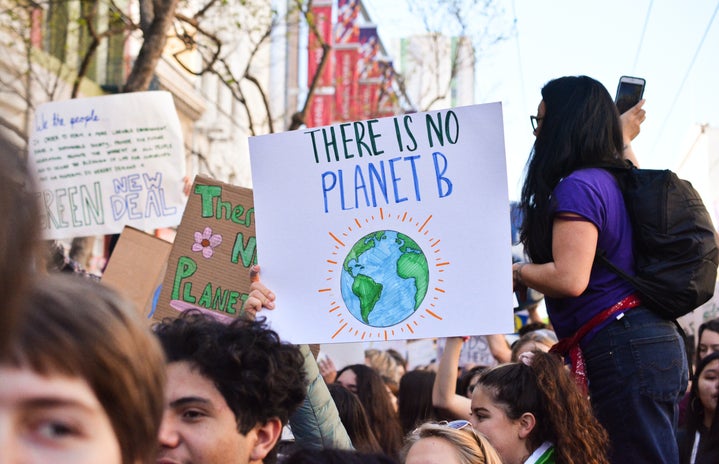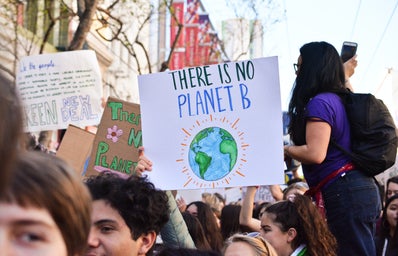In high school, I was very involved with a bunch of different clubs, sports, and other organizations. During my junior year, I started to become more passionate about sustainability and was interested in learning ways to protect our home. I knew I wanted to continue my passion through college, but I was unsure how. I did some research on different clubs CU Boulder had to offer, and I found EcoReps. So starting off my freshman year of college, I decided to apply for CU Boulder’s EcoReps sustainability program. This program seemed like the perfect opportunity to start my college experience and continue to learn about sustainability. Here are some big takeaways from EcoReps that I feel like everyone should know.
- What is EcoReps?
-
EcoReps is a year-long program for freshman students to blend leadership skills with sustainable and green living. EcoReps go through leadership training, weekly meetings and retreats to help build proper knowledge to share with other students living in the residence halls. EcoReps help keep the residence hall communities up to date on proper sustainability tactics, along with maintaining lifelong, valuable information regarding sustainability.
- EcoReps purpose.
-
Being an EcoRep means showing responsibility and leadership to other students across campus to encourage participation towards a better lifestyle for our community, ourselves and our planet. I joined EcoReps because I wanted to see firsthand the sustainable practices at CU Boulder, and I wanted to be a part of the change that constantly influences the Boulder community.
- EcoReps responsibilities.
-
You might be wondering, what exactly do you do in EcoReps? So the first and most important step of an EcoReps journey is the member retreat. This retreat happens right before school and move-in starts. One of the big benefits is that you get to move in early since the retreat is so close to the start of the semester. The retreat is two to three days long and you get to meet the coordinators and other EcoReps members. The retreat is an intimate experience that helps build bonds with the EcoReps community, so we can start the school year strong. After the retreat, I learned basic recycling, trash, and compost rules, and common mistakes people make between them.
- What I learned from EcoReps.
-
I joined EcoReps to learn more about the history of sustainability at CU Boulder and what actions are implemented to preserve its sustainable reputation. I also learned more about the biggest influences our actions have on the environment. I was able to apply awareness and accountability to encourage my friends, family, and fellow students at CU Boulder to become aware of their actions. Participating in service projects with a community just as enthusiastic as myself led me to a deeper path of sustainability and unlocked new opportunities to share this information with my peers. Some of the biggest takeaways I learned were about food and technology.
The food industry has made it very easy for Americans to buy large quantities of food. However, this expansion has had severe consequences to our environment. Large-scale agriculture is linked to water pollution, soil loss, and habitat destruction. This relies heavily on the use of fertilizers and pesticides, which unfortunately have negative effects on human and environmental health. As consumers, we can choose where we spend our money and choose which types of farmers we want to support. When shopping for groceries, it is important to know the source of the items you are purchasing. I also recommend shopping locally at farmer’s markets to support the economy and limit the carbon footprint used from long transportation methods. Eating produce that is fresh is important to avoid mass factory usage. Cooking your own meals can drastically reduce the environmental footprint of food consumption. Cooking allows you to control your ingredients, save money on eating out, and creates an opportunity to connect with local shops and markets.
Technology is all over American society ranging from the microwave in your kitchen to the laptop on your desk. It’s no shock that we use technology for school, checking emails, completing assignments, watching Netflix, or texting with our friends. Nowadays, it’s almost impossible to go one day without the internet. However, the energy required to watch one hour of TV on your phone per week for a year can surpass the amount of energy used by two refrigerators in one year. Thinking of how much such a small device like a phone impacts the environment, it’s crazy to think about how leaving lights or the TV on all day, or even keeping chargers plugged into the wall can affect the environment. Not only do electronics contain toxic, heavy materialism, they also take significant amounts of resources to make and produce them. These resources can contaminate groundwater which violates our public health.
I hope this article encouraged you to be more cautious of your ecological footprint and motivated you to learn more about sustainability. Being a part of EcoReps was such a valuable experience, and I wouldn’t have traded it for the world. It’s so important to start taking accountability for the actions that can deplenish our home because globally, we are heading down an irreversible path that is damaging our home and the environment around us.



